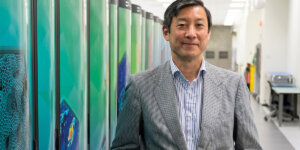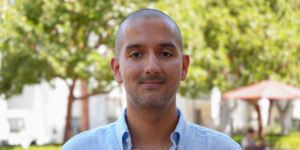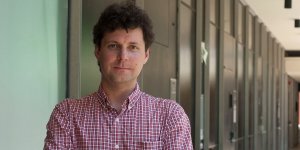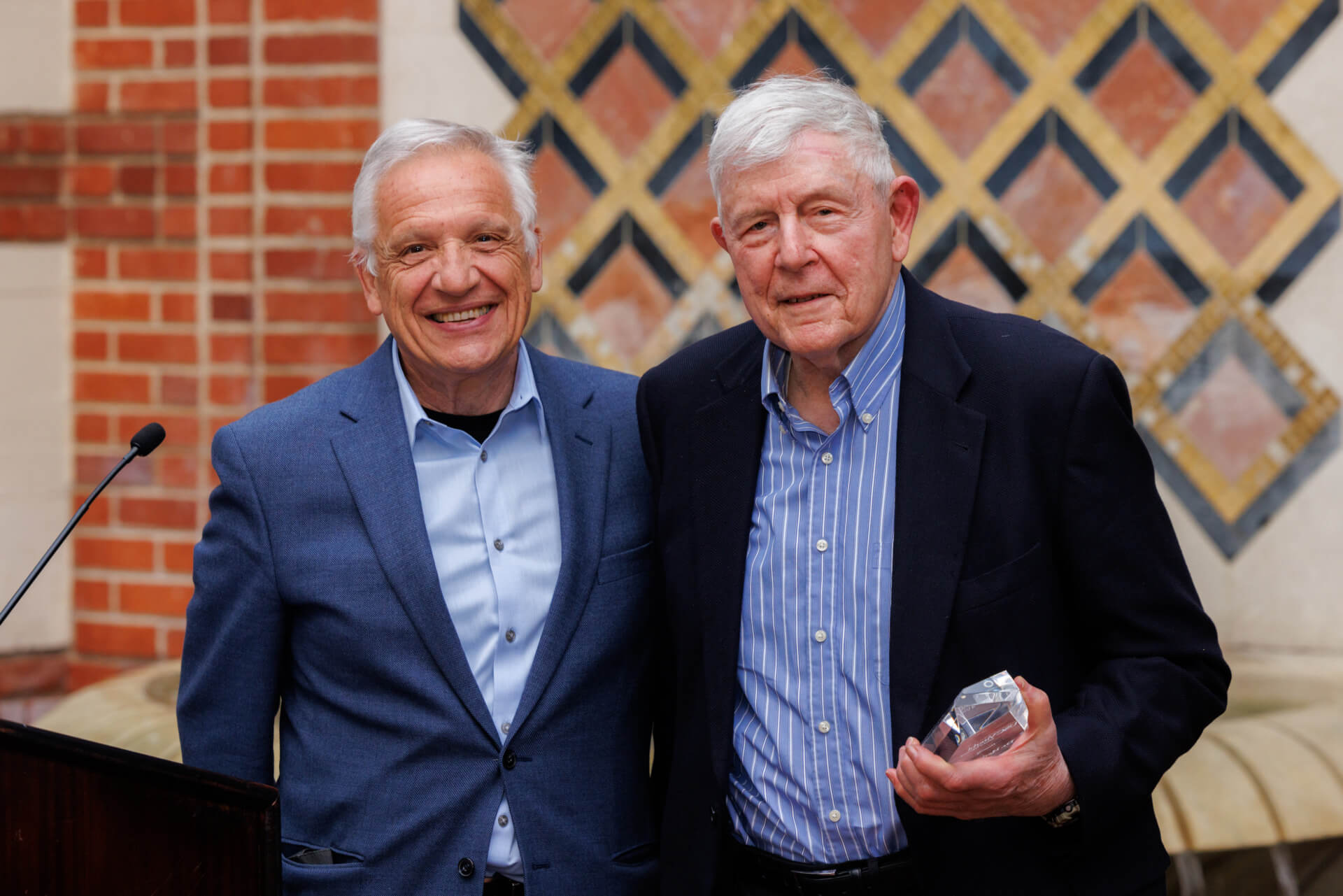
On March 25, USC Viterbi’s Dean Yannis Yortsos hosted a career celebration of former ISI Executive Director Herb Schorr (Photo/Brian Morri)
At an intimate Town and Gown event on March 25, Dean Yannis Yortsos welcomed USC Viterbi faculty, family and friends to celebrate the career of Herb Schorr, Research Professor Emeritus of Computer Science, Director Emeritus of the USC Information Sciences Institute (ISI), and Vice Dean Emeritus of Engineering.
A venerated leader who presided over ISI — which helped design and manage the internet — during some of the most transformative years in engineering, computer science and technology innovation, Schorr dramatically broadened the institute’s focus, recruited new researchers and encouraged cross-disciplinary approaches.
His ISI tenure, from 1988 to 2012, was marked by true collaboration among USC’s many research centers as well as revolutionary changes in computing power. “Grid” software (now known as cloud computing), for example, helped to usher in a new collaborative era of data-sharing for initiatives around the world in myriad fields, from physics to bioinformatics and genetics.
“I am very pleased to have contributed to — and enjoyed rebuilding — ISI while developing much closer ties with the school than previously existed.” Schorr said. “I (also) got involved with revamping distance learning, high performance computing, and quantum computing, a first for a university.”
Another USC Viterbi role Schorr took on during his Trojan years was his position as senior associate dean of engineering, heading up the Distance Education Network — now known as DEN@Viterbi — and Information Technology Program.
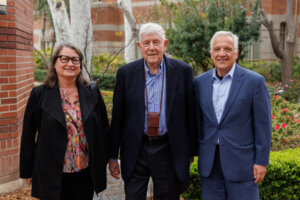
From left, ISI’s Yolanda Gil, Herb Schorr and Dean Yannis Yortsos (Photo/Brian Morri)
“Herb shaped and led ISI into the model it is today based on a fundamental and key insight: that computing was increasingly becoming the enabling power of all disciplines,” said Yortsos. “In the process, he helped elevate the prestige and reputation of USC Viterbi.”
Under Schorr, ISI funding also skyrocketed from agencies focused on science, medicine, space and defense.
“The funding model under which ISI had originated had been abandoned by the Department of Defense, so we had to restructure and change,” Schorr said. Subsequently, staffing jumped significantly.
One of those staffers was Yolanda Gil, ISI’s current principal scientist and senior director for strategic initiatives in artificial intelligence and data science. She recounted her initial job interview with Schorr and ISI back in 1992.
“I thought to myself, this place is one-of-a-kind, but this director is definitely one-of-a-kind, he fits right in. I accepted their offer because I could not imagine a more exciting place to be.”
Schorr graduated from City University of New York and received his Ph.D. in electrical engineering from Princeton in 1963. He was an instructor of electrical engineering at Princeton during the 1961 academic year, and, from 1962-63, he was a National Science Foundation postdoctoral fellow at Cambridge University. Upon returning from England, he became an assistant professor at Columbia University.
He then joined IBM in 1965 and began a prosperous 23-year career within different divisions of the company before his jump to ISI in 1988.
Among his many citations and honors, Schorr is a member of the Institute of Electrical and Electronics Engineers, the Association for Computing Machinery and the American Association for the Advancement of Science.
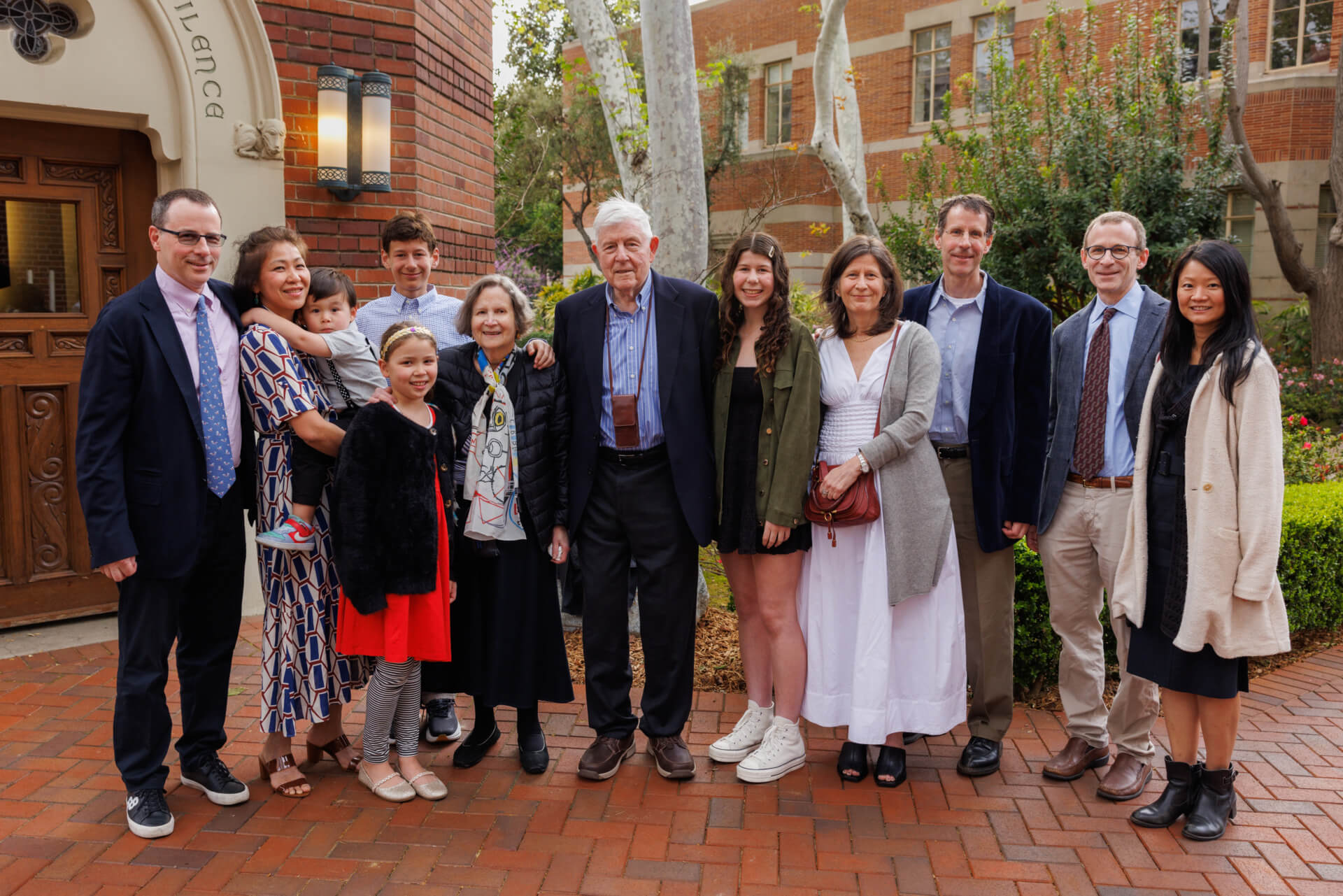
Herb Schorr and his family at his career celebration on March 25 (Photo/Brian Morri)
“I cannot do justice to all of the initiatives he started and nourished, including in cybersecurity, networking, MOSIS, and the support of grid computing, data processing and data infrastructure,” said Yortsos.
Schorr, who now lives in New York City and who was joined at the event by his wife, Lenore, and several family members, closed the event by speaking fondly of the place he helped to build and guide for more than two decades.
“It was an honor for me to be at USC,” he said.
Published on April 2nd, 2024
Last updated on July 15th, 2024




